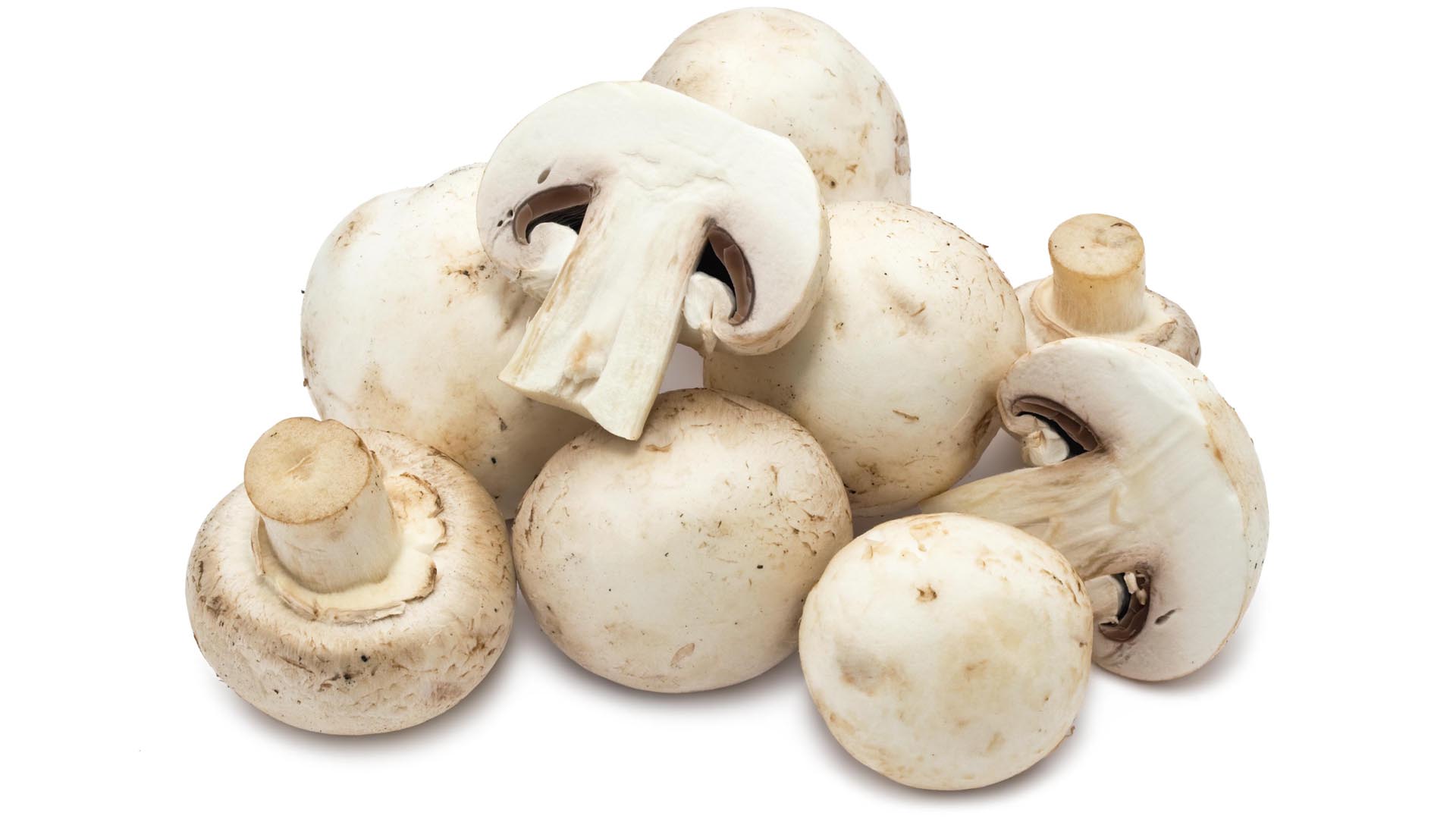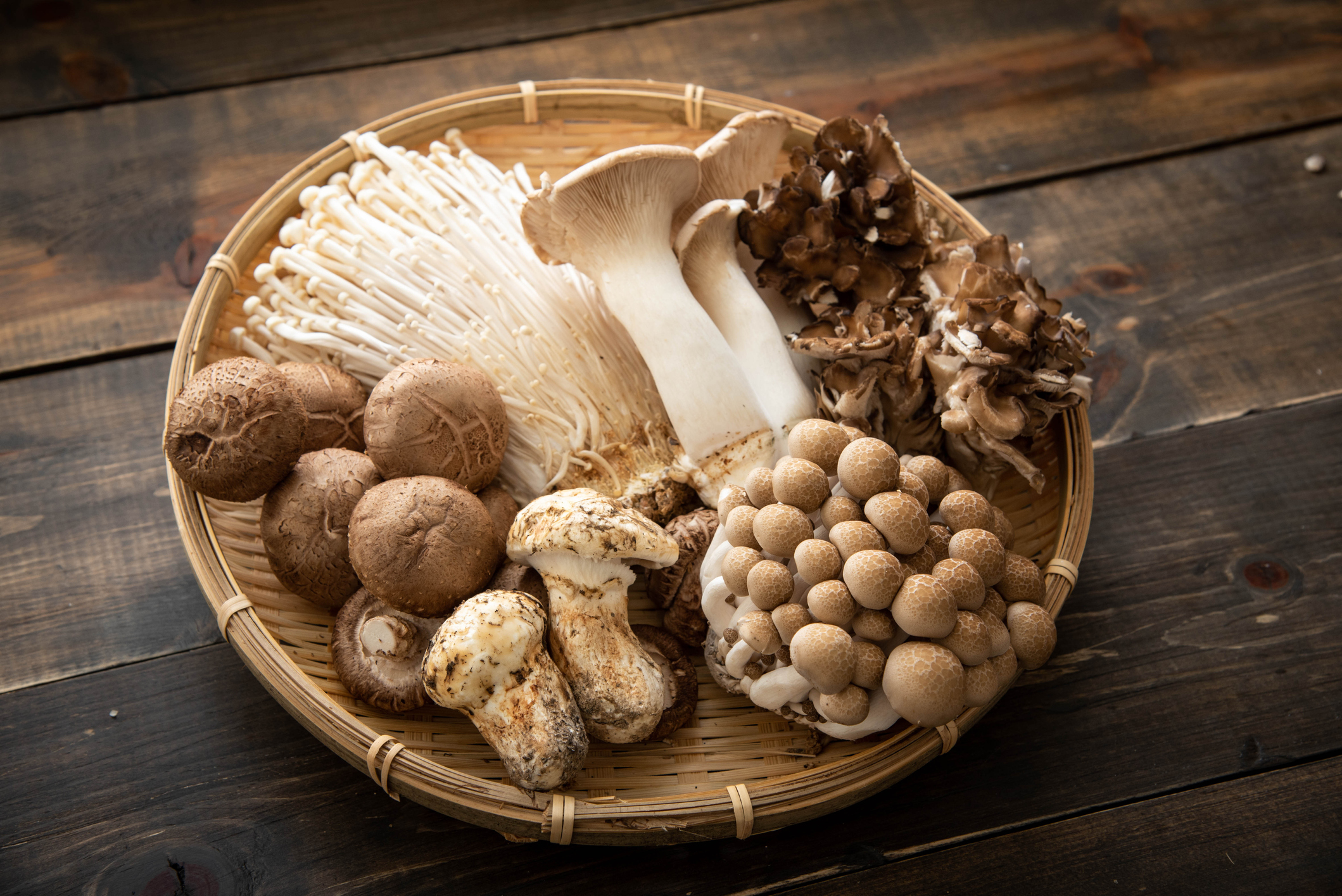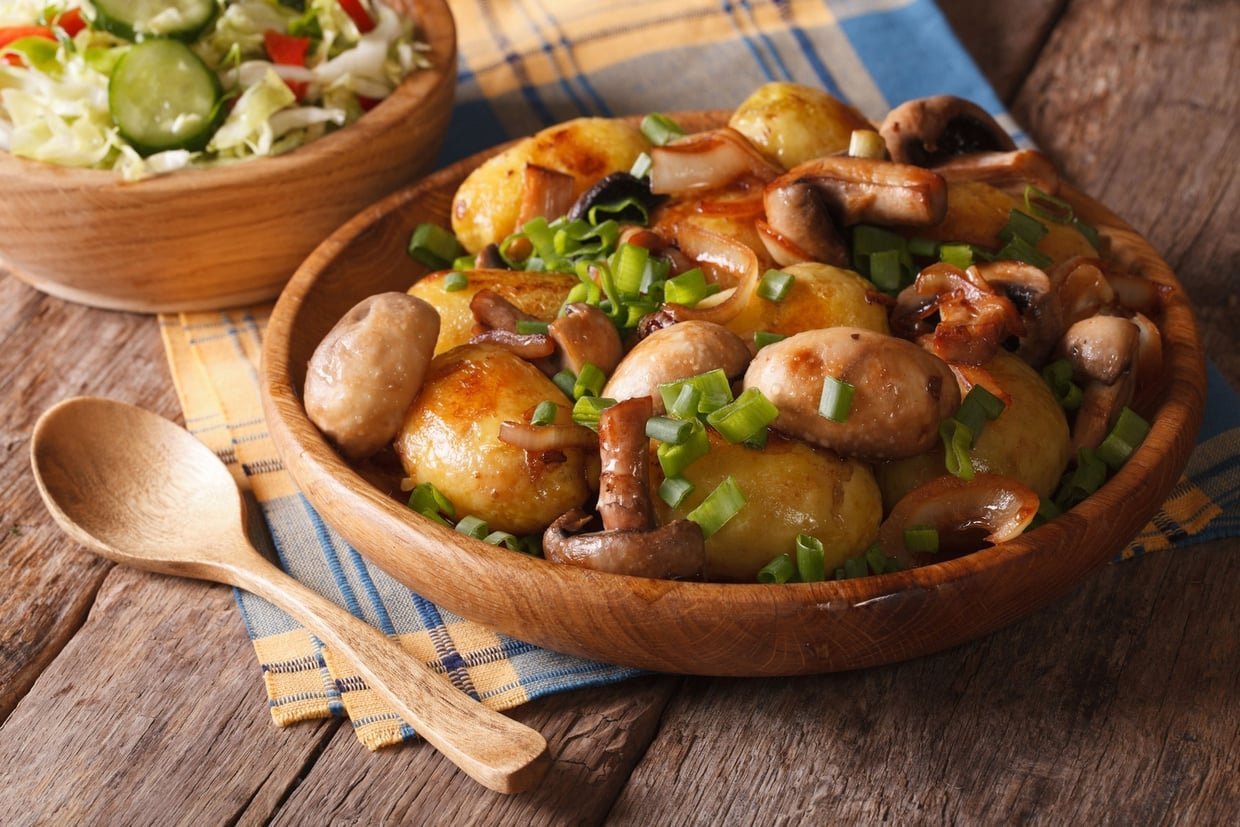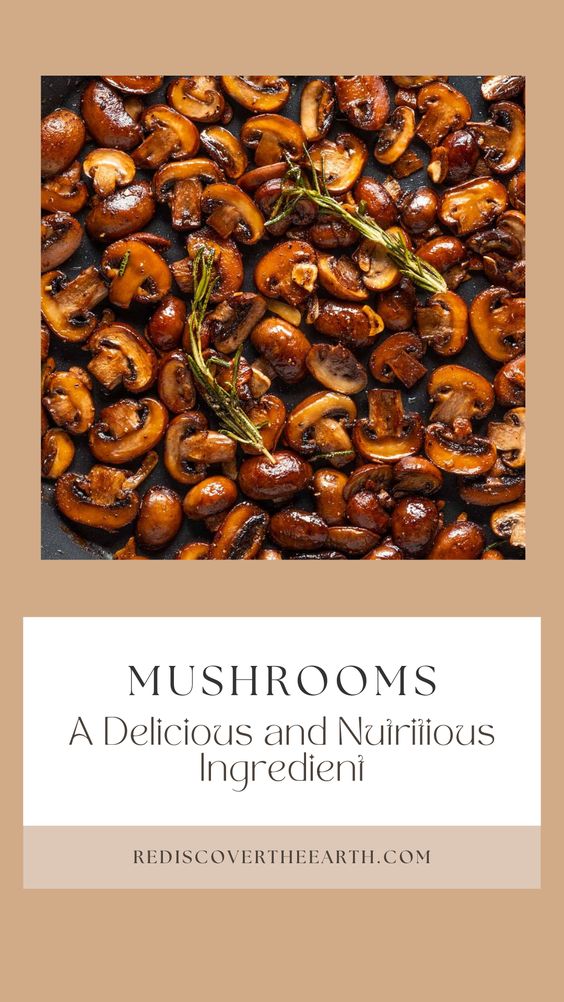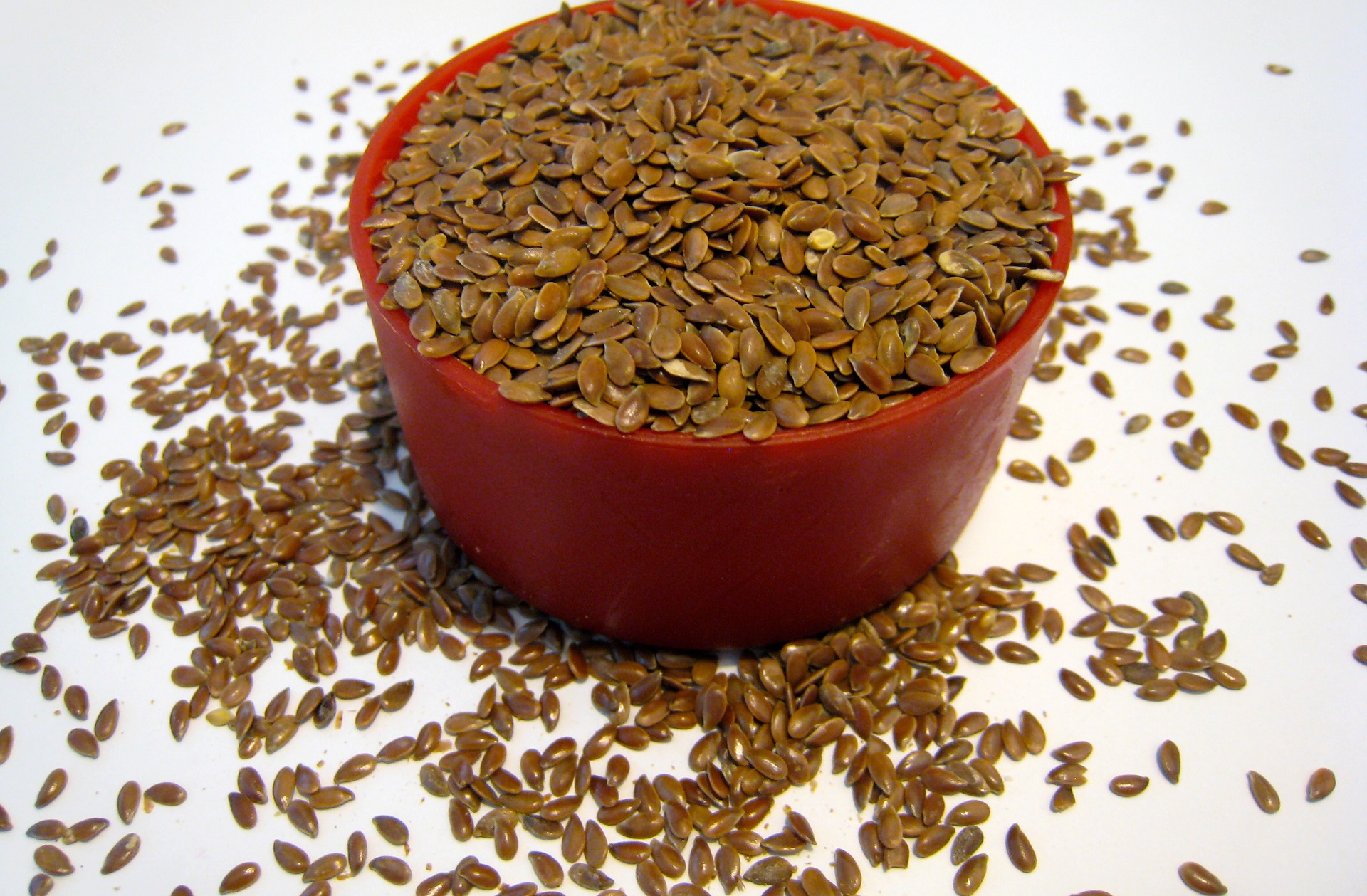Sunflowers are also known for their oil-rich seeds, which are a popular snack food and ingredient in many recipes. There are some recipes of sunflower seeds which are rich in healthy fats, protein, and other nutrients, making them a nutritious addition to any diet. In addition to their culinary uses, sunflower seeds are also used in the production of biodiesel, a renewable energy source.
Recipes of Sunflower Seeds
Sunflower seeds are a versatile and nutrient-packed ingredient that can add a crunchy texture and nutty flavour to
a variety of recipes. From sweet to savory, sunflower seeds can be used in everything from baked goods to salads and main dishes, making them a great addition to any meal. whether you’re looking to boost the nutritional value of your food or simply add some extra flavour and crunch, these delicious sunflower seed recipes are sure to satisfy your taste buds and nourish your body.
Here are three tasty and nutritious recipes featuring sunflower seeds:
Sunflower Seed Pesto
This flavourful and healthy pesto is a great alternative to traditional basil pesto. To make it, blend 2 cups of fresh basil leaves, 1/2 cup of sunflower seeds, 1/4 cup of grated Parmesan cheese, 1 clove of garlic, and 1/2 cup of olive oil in a food processor until smooth. Use it as a topping for pasta or as a dip for vegetables.
Sunflower Seed and Honey Granola
This homemade granola is easy to make and packed with nutrients. Mix 3 cups of rolled oats, 1/2 cup of sunflower seeds, 1/2 cup of chopped almonds, 1/4 cup of honey, 1/4 cup of coconut oil, and a pinch of salt in a bowl. Spread the mixture onto a baking sheet and bake at 350°F for 25 minutes, stirring occasionally. Allow it to cool and store in an airtight container.
Sunflower Seed Chicken Salad
This healthy and delicious chicken salad is perfect for a quick and easy lunch. Cook 2 chicken breasts and chop into small pieces. Mix with 1/4 cup of sunflower seeds, 1/4 cup of chopped celery, 1/4 cup of chopped apple, and 1/4 cup of plain Greek yogurt. Season with salt and pepper to taste. Serve on a bed of lettuce or as a sandwich filling.
Sunflower seed salad
Sunflower seed salad is a healthy and tasty dish that can be served as a main meal or side dish. Enjoy its crunchy texture and nutty flavor.
To make this salad, start by washing and preparing your desired salad greens, cherry tomatoes, cucumber, red onion, and carrots. Next, combine the mixed greens and prepared vegetables in a large salad bowl.
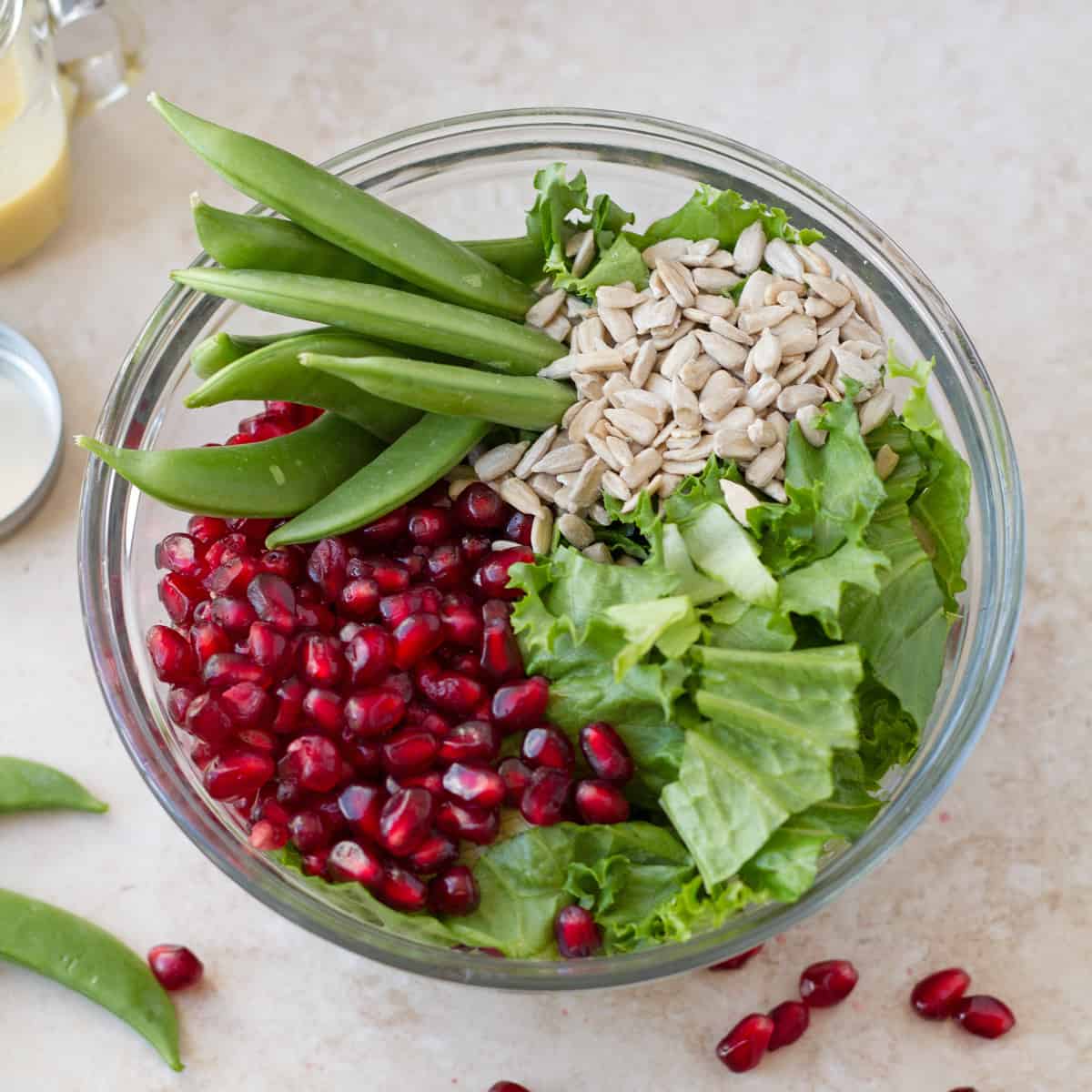
Sprinkle a generous amount of sunflower seeds over the top of the salad to add a crunchy texture and nutty flavour.
Finally, drizzle your preferred salad dressing over the salad and toss gently to combine all the ingredients.
You can use any salad dressing of your choice, whether it’s a classic vinaigrette or a creamy ranch dressing. This salad can be customized to your liking by adding additional toppings such as avocado, croutons, grilled chicken or tofu, or feta cheese.
It’s a simple and satisfying salad that’s perfect for a quick and healthy meal or a potluck party.
Sunflower Seeds Butter
Place the sunflower seeds in a food processor or high-speed blender. Process the seeds for 10-15 minutes, scraping down the sides of the bowl as needed. The mixture will go through several stages, starting with a coarse texture and gradually becoming smoother and creamier. Once the sunflower seed butter reaches your desired consistency, add a pinch of salt and any other flavourings you like, such as honey or cinnamon.
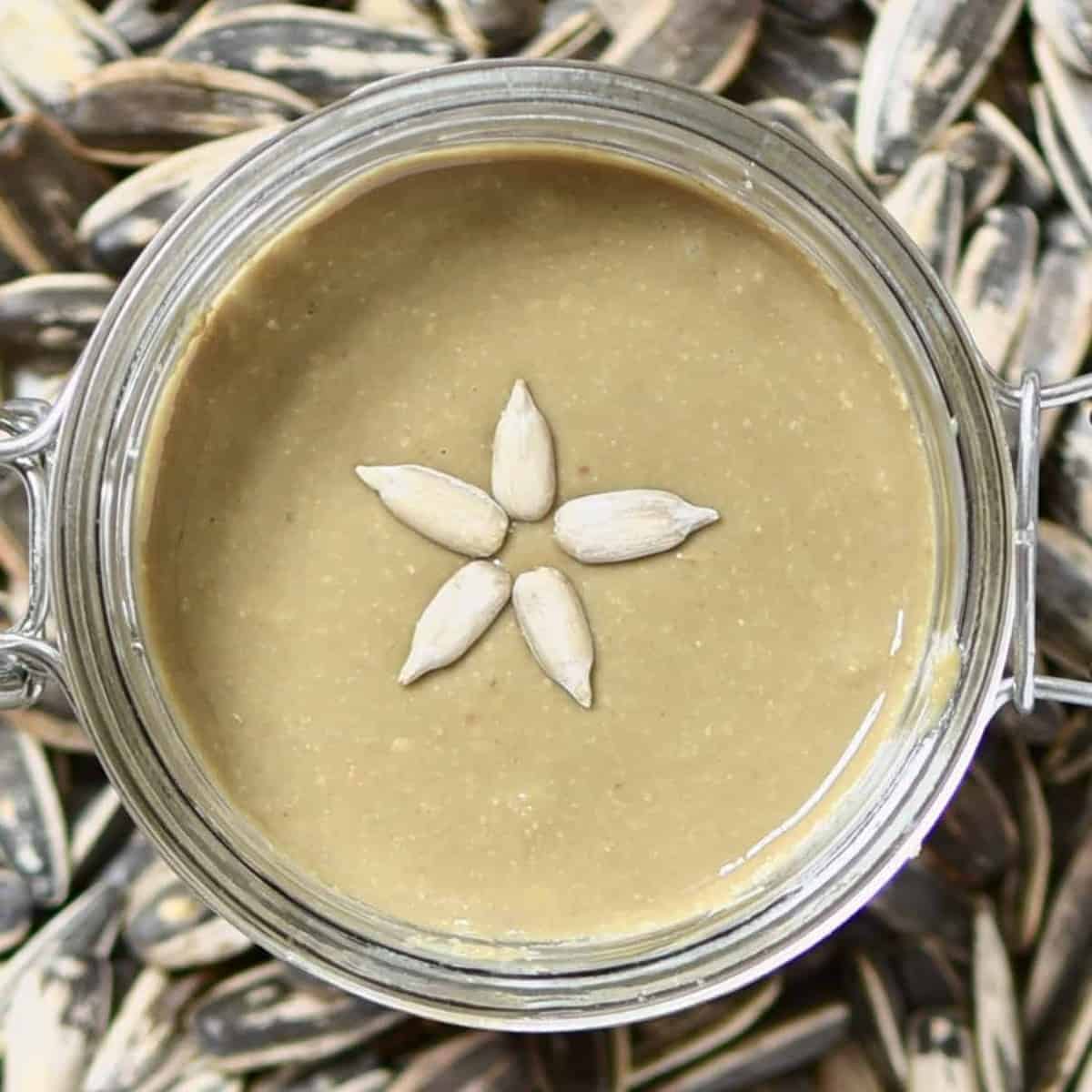
Transfer the sunflower seed butter to a jar and store it in the refrigerator. It will keep for up to two weeks.
Enjoy your homemade sunflower butter as a spread on toast, in smoothies, or as a dip for fruit and vegetables. This no-bake version of sunflower seed butter is just as delicious and can be made without using an oven.
Sunflower seed butter is a spread made from ground roasted sunflower seeds, and it is often used as an alternative to peanut butter. It has a similar texture and flavour to other nut butters, making it a great alternative for those who cannot consume peanuts, but it does not contain any dairy or animal products, making it a popular choice for people who follow a vegan or dairy-free diet.
Sunflower seed butter has versatile uses, including spreading it on toast, dipping fruits or veggies, or baking goods.. It is a versatile and nutritious option that can be a part of a balanced vegan or non-vegan diet.
Sunflower seed butter, also known as sunflower seed spread, is a delicious and nutritious alternative to peanut butter. Made from ground sunflower seeds, it has a creamy texture and nutty flavor that makes it a popular choice among health-conscious individuals.
Nutritional Benefits of Sunflower Seed Butter
- Sunflower seed butter is a nutritious food that offers a range of health benefits. It is an excellent source of protein, fiber, healthy fats, and important vitamins and minerals.
- Antioxidants in sunflower seed butter protect the body from free radical damage, improving overall health and wellbeing.
- Sunflower seed butter is rich in vitamins and minerals such as vitamin E, magnesium, and selenium, all of which are important for overall health and wellbeing. Vitamin E is an antioxidant that helps protect the body from damage caused by free radicals, while magnesium plays a role in maintaining healthy bones, muscles, and nerves. Selenium is an essential mineral that helps support the immune system and thyroid function.
- One serving of sunflower seed butter typically contains around 7 grams of protein and 3 grams of fiber, making it a filling and satisfying food that can help you feel full and satisfied for longer.
- High in monounsaturated and polyunsaturated fats, sunflower seed butter can lower cholesterol and reduce the risk of heart disease.
- Overall, sunflower seed butter is a nutritious and delicious food that can be a healthy addition to any diet. Sunflower seed butter is a safe and tasty alternative to nut butter for those with allergies or looking for variety.
